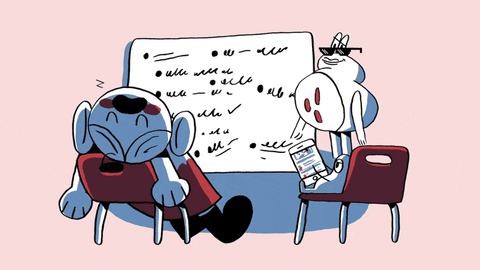This is an episode from Storyteller Tactics' Kickstarter launch campaign, brought to you by Happy Ever Afters and
Zanussi died unexpectedly.
Unloved and un-mourned by the millions of people who’d never read his work.
Overnight, Google had changed its search algorithms. They’d seen through the likes of Zanussi Cumberbatch, with his pathetic attempts to game the system. With a few lines of code, they sentenced Zanussi to death.
And the agency gave Orson his P45. Nobody needed his kind of articles anymore. They certainly didn’t need Zanussi. It was a hell of a shock.
But it was also, strangely, a relief. Zanussi had always felt like a fraud. Orson wanted to be a writer, and real writers need real readers.
Orson slumped at his desk, looking at the spot where Hemingway’s photo used to sit. What had he learned from the secret life and sudden death of Zanussi Cumberbatch?
Well, for a start, Orson knew he could write. “Show Up at the Page” is the cardinal rule of writing, and Orson had spent two long years showing up at the page. Also, he knew what bad writing was like, and he never wanted to feel like a fraud again.
Finally, Orson had realised you shouldn’t write for search engines. Algorithms constantly change, but people rarely do. As a writer, your reader should be king. Orson had learned one simple truth: nobody is obliged to read your content. If you don’t put your audience first, they will ignore you.
Orson’s next job was not as a copywriter, but as a content designer. Sometimes he wrote sixteen words of tight prose, sometimes seven hundred. Sometimes he argued for a simple map or a timeline. But it was always based on what user research suggested people needed.
Orson dusted off his old photo of Hemingway and put it on his desk at his new agency. A bit of inspiration. Everyone’s got a novel in them, right?
(Meanwhile, nobody has ever put a photo of Zanussi Cumberbatch up anywhere)
This week’s Storyteller Tactics
Happy Ever Afters
When we get things wrong, it’s easy to double down on our mistakes, dig our heels in and refuse to admit anything was our fault. Orson could have blamed the algorithm, blamed the agency or blamed anyone but himself. Instead, he took stock and decided to change. That’s the difference between a tragic story and a Happy Ever After.
Save Your Reader
Good writing should use words that are Short, Active, Visual and Empathetic. This is how you show your audience proper respect. Short sentences are easier to understand. Active verbs engage the brain. (As opposed to “the brain is engaged by the use of active verbs”).
Visual descriptions help us see what you mean (Orson slumped at his desk, the photo of Hemingway as a symbol of writerly virtue). Empathetic writing gets the reader on your side. So tell us about the emotions, the hopes and fears inside your characters.
Next episode: Time to jump ship?











